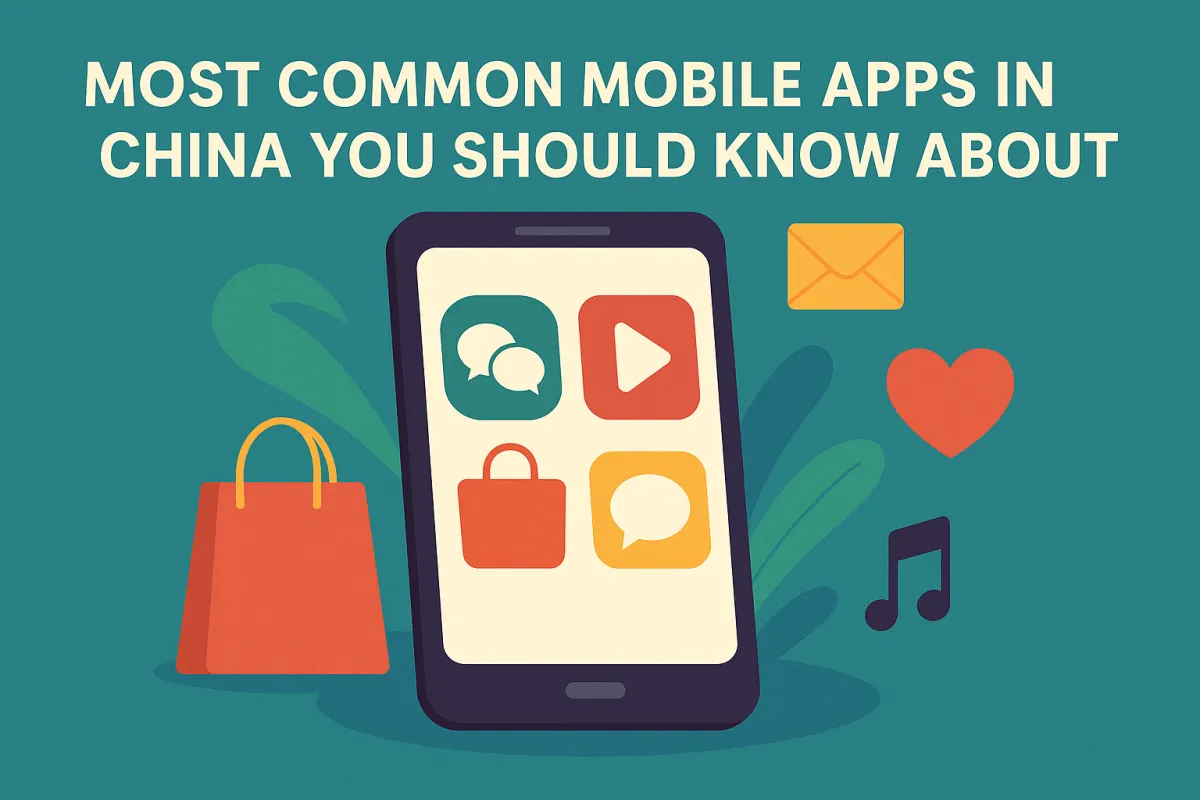
Most Common Mobile Apps in China You Should Know About
Most Common Mobile Apps in China You Should Know About
If you’re planning to travel, live, or do business in China, your mobile phone will become your best friend. But the app ecosystem in China is very different from the West. Due to internet restrictions and local preferences, popular global apps like Google, Facebook, YouTube, and WhatsApp are not commonly used. Instead, China has its own set of powerful and multifunctional apps that dominate daily life.
Here are the most common mobile apps used in China—and why you should know them.
1. WeChat (微信 / Wēixìn)

📱 Use it for: Messaging, voice/video calls, payments, shopping, social media, and more
WeChat is not just a messaging app—it’s an all-in-one platform. People use it to chat, pay bills, book taxis, read news, and even apply for jobs. It's often described as a combination of WhatsApp + Facebook + PayPal + Uber.
✅ Must-have for: Everyone in China
2. Alipay (支付宝 / Zhīfùbǎo)

📱 Use it for: Mobile payments, online shopping, utilities, QR codes
Owned by Alibaba, Alipay is China’s most popular mobile wallet. From buying food at a street stall to paying rent, people use Alipay for everything. It’s also used for credit scoring, investment, and insurance services.
✅ Must-have for: Cashless payments and online purchases
3. Taobao (淘宝)

🛒 Use it for: Online shopping
Taobao is the Amazon of China, but even more powerful. It sells everything—from clothes to electronics to fresh fruit. It's known for its cheap prices, massive variety, and live-streaming shopping experiences.
✅ Must-have for: Shopaholics and bargain hunters
4. Didi (滴滴出行 / Dīdī chūxíng)

🚗 Use it for: Ride-hailing (like Uber)
Didi is the Chinese version of Uber—and it actually bought Uber’s China operations. It’s the go-to app for getting a taxi or private ride, available in almost all cities.
✅ Must-have for: Transportation and commuting
5. Meituan (美团) & E le me (饿了么)


🍱 Use it for: Food delivery, groceries, and services
These two apps are the kings of food delivery in China. From bubble tea to Michelin-star meals, they bring everything to your door. They also offer services like massage booking, housekeeping, and hotel reservations.
✅ Must-have for: Fast food delivery and local services
6. Douyin (抖音)

🎥 Use it for: Short videos (China's version of TikTok)
Douyin is the original version of TikTok and offers funny, educational, and trendy short videos. It’s widely used by both young and older generations, and it's also a popular marketing tool for businesses.
✅ Must-have for: Entertainment and viral content
7. RED (小红书 / Xiǎo hóng shū)

📷 Use it for: Lifestyle, reviews, travel, fashion tips
Also known as Xiaohongshu or RED, this app is like Instagram + TripAdvisor + Pinterest. It’s especially popular among young women and influencers in China.
✅ Must-have for: Product reviews, skincare tips, and trend discovery
8. Weibo (微博)

🐦 Use it for: News, celebrity gossip, microblogging
Think of Weibo as Twitter meets Facebook. It’s where people go for real-time news, trending topics, and celebrity updates.
✅ Must-have for: Keeping up with what’s trending in China
9. Bilibili (哔哩哔哩)

📺 Use it for: Anime, gaming, live streams, and youth culture
Bilibili is a cultural hub for China’s younger generation. It's known for anime, games, live streams, tutorials, and vlogs, often featuring a “danmu” (bullet comment) system for interactive video watching.
✅ Must-have for: Fans of ACG (anime, comics, games) and video content
10. JD (京东 / Jīngdōng)

🛒 Use it for: E-commerce (like Amazon, but faster)
JD is a major rival to Taobao and is known for reliable delivery, genuine products, and same-day shipping. It’s great for electronics and high-value items.
✅ Must-have for: Fast and trustworthy online shopping
In Summary
Final Thoughts
China’s app ecosystem is incredibly rich, and most daily activities—from chatting to paying rent—are done entirely by mobile phone. If you're heading to China or doing business with Chinese users, getting familiar with these apps will help you navigate life smoothly and confidently.
